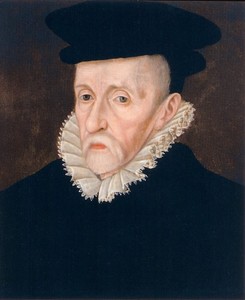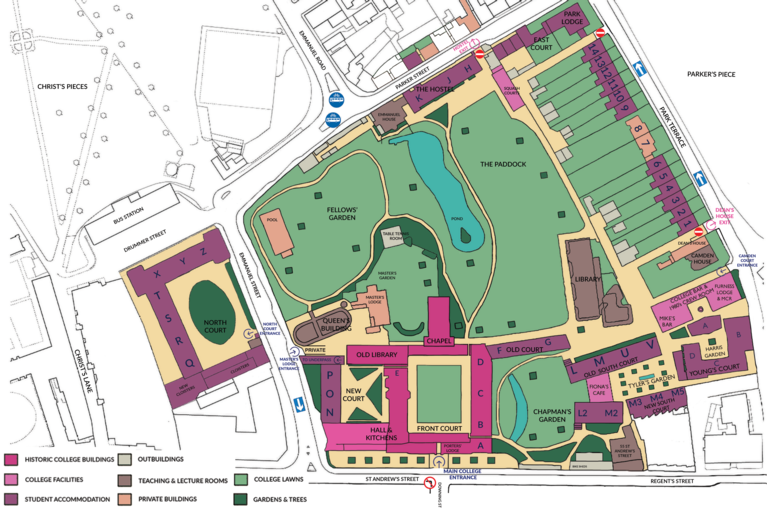Sir Walter Mildmay (1520 - 1589)

Emmanuel College was founded by Sir Walter Mildmay in 1584 on the site of a former priory of the Dominican Order, also known as the Black Friars or Preachers.
Mildmay had a long career of public service to his credit, and was for many years Chancellor of the Exchequer to Queen Elizabeth I. A man of Puritan sympathies, though a staunch upholder of the Elizabethan settlement, he decided to establish a College where Protestant preachers would receive education and training of the same thoroughness as their Dominican predecessors. Today, though Emmanuel still has some theological students, the range of studies includes all academic subjects; and since 1979 membership of the College has been open to women as well as men.
Walter Mildmay was the youngest son of a prosperous merchant of Chelmsford in Essex and in 1538 he was sent to Christ's College in Cambridge. He did not stay long enough to take a degree but he acquired a lasting attachment to his college; and it must have been in these formative years that he developed his sympathy for Calvinistic puritanism.
Mildmay continued in public service, much in demand in financial affairs, throughout the reigns of Edward VI and Mary, and by 1551 was wealthy enough to acquire a country estate at Apethorpe near Oundle. Under Elizabeth I he became a Privy Councillor, and was from 1559 to his death her chancellor of the Exchequer. He frequently used his influence to protect the Puritans and to help protestant refugees from the Continent. He showed too a concern for education by benefactions in 1548 to Chelmsford Grammar School and in 1568 to Christ's College.
Mildmay's intellectual and religious interests found their fullest expression in his foundation of Emmanuel in 1584. His original statutes for the College emphasised its role as a seedbed of learned ministers, but from the first it also accepted students with other careers in view; and though critics labelled it a 'puritan' institution both Mildmay and Laurence Chaderton (our first Master) made clear that they were neither religious separatists nor political dissidents.

